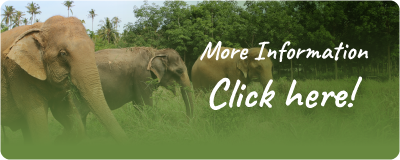sustainability policy
Our Sustainability Policy
Samui Namuang Travel & Tour is dedicated to promoting ethical, responsible, and sustainable tourism that benefits elephants, the environment, and local communities. We operate transparently and in line with the three pillars of sustainability — economic, social, and environmental — ensuring our tourism activities create positive impact and support long-term conservation and community wellbeing.
1. Elephant Welfare
Our elephants are at the heart of everything we do. We are committed to operating in accordance with applicable Thai regulations and recognized good practices for animal welfare.
Our commitments include:
-
No riding, performances, or exploitative interactions that cause harm, stress, or unnatural behavior to elephants.
-
Providing education-based and observation-based experiences where guests learn about elephant behavior, biology, and conservation.
-
Ensuring elephants have access to adequate food, water, space, and veterinary care, and opportunities to express natural behavior.
-
Providing staff training on elephant welfare, safety, and responsible visitor interaction.
-
Maintaining internal welfare routines and records to support continuous improvement.
2. Environmental Stewardship
We recognize our responsibility to protect the natural environment that supports our elephants and local community.
Samui Namuang Travel & Tour commits to:
-
Promoting the Reduce, Reuse, Recycle principle and encouraging responsible waste behavior by staff and guests.
-
Minimizing the use of single-use plastics and encouraging reusable/refillable alternatives.
-
Using locally sourced and eco-friendly materials wherever possible.
-
Delivering environmental education and awareness through our programs (e.g., seed bomb activities and tree planting that support habitat restoration and food sources for elephants).
-
Encouraging respectful behavior in natural areas (no littering, no removal of plants or natural materials, and staying on designated paths).
-
Reducing the environmental impact of guest transportation through efficient route planning, grouping guests by location, regular vehicle maintenance, and eco-driving practices, with ongoing monitoring of fuel use and transport efficiency.
3. Local Community Empowerment
As a proudly local organization, we believe sustainable tourism must uplift the people who live here.
We support and empower the Samui community by:
-
Partnering with local farmers, artisans, and small businesses to supply food, crafts, and services.
-
Providing employment opportunities and fair working conditions for local residents.
-
Supporting education initiatives such as school visits, conservation learning workshops, and community engagement activities.
-
Encouraging cultural preservation and respect for local traditions and spiritual sites.
-
Collaborating with relevant stakeholders where appropriate to address social and environmental challenges on the island.
4. Ethical Business Conduct
We uphold fairness, transparency, and respect for all individuals
-
We prohibit discrimination based on race, religion, gender, nationality, disability, or background.
-
We seek mutually beneficial relationships with partners and communities and do not exploit superior bargaining positions.
-
We operate honestly and responsibly, avoiding misleading claims and unethical marketing.
-
We expect suppliers and partners to comply with legal, ethical, and responsible practices.
-
We do not work with accommodation providers, transport providers, or other partners that employ children under the age of 14 or engage in forced labour practices.
5. Wildlife Protection & Responsible Purchasing
Samui Namuang Travel & Tour does not support the harvesting, consumption, display, sale, or trade of wildlife species, except where regulated and compliant with local, national, and international law.
We do not support souvenirs or products that contain:
-
Threatened flora and fauna species (e.g., as referenced by CITES and the IUCN Red List)
-
Illegally obtained historical/archaeological artefacts
-
Illegal substances
If any related illegal activity is identified, Samui Namuang Travel & Tour reserves the right to end the partnership immediately.
6. Sustainable Experiences & Honest Marketing
All guest experiences are designed to be educational, non-exploitative, and community-supportive.
-
Marketing communications are honest and transparent and do not overpromise.
-
We encourage guests to participate in positive-impact actions such as conservation learning activities, seed bombs, and tree planting when available.
-
We share sustainability updates through our communication channels (website/blog/social media) and public reporting.










